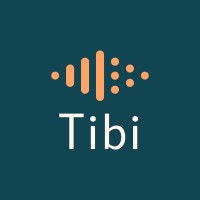Company Details
fingerlakeslibrarysystem
7
43
519
flls.org
0
FIN_8034735
In-progress

Finger Lakes Library System Company CyberSecurity Posture
flls.orgThe Finger Lakes Library System is a cooperative library system, chartered in 1958 by New York State, to serve the public libraries in Cayuga, Cortland, Seneca, Tioga, and Tompkins Counties. Our member libraries, currently numbering 33, are independent and governed by local Boards of Trustees. One of twenty-three library systems in New York State, we operate under a state-approved plan of service. The System is governed by an eleven member Board of Trustees with two representatives from each of the five counties served, and one at-large member. Public Library Systems were established in Education Law in the late 1950s by the State Legislature and Governor for the purpose of helping local libraries better serve their communities through cooperation, sharing resources, and by offering cost-effective services. Governance and function are established in the Regulations of the Commissioner of Education. Most of the 23 public library systems in New York State are primarily supported by State funding.
Company Details
fingerlakeslibrarysystem
7
43
519
flls.org
0
FIN_8034735
In-progress
Between 750 and 799

 FLLS Global Score (TPRM)
FLLS Global Score (TPRM)XXXX



No incidents recorded for Finger Lakes Library System in 2025.
No incidents recorded for Finger Lakes Library System in 2025.
No incidents recorded for Finger Lakes Library System in 2025.
FLLS cyber incidents detection timeline including parent company and subsidiaries

The Finger Lakes Library System is a cooperative library system, chartered in 1958 by New York State, to serve the public libraries in Cayuga, Cortland, Seneca, Tioga, and Tompkins Counties. Our member libraries, currently numbering 33, are independent and governed by local Boards of Trustees. One of twenty-three library systems in New York State, we operate under a state-approved plan of service. The System is governed by an eleven member Board of Trustees with two representatives from each of the five counties served, and one at-large member. Public Library Systems were established in Education Law in the late 1950s by the State Legislature and Governor for the purpose of helping local libraries better serve their communities through cooperation, sharing resources, and by offering cost-effective services. Governance and function are established in the Regulations of the Commissioner of Education. Most of the 23 public library systems in New York State are primarily supported by State funding.


Verona Public Library is a home town library with big city frills! The library prides itself on being a valued asset in the community. We have become a valued asset by communicating with our customers to ensure we provide what they need. We are not your quiet, hair-in-bun, shushing kind of librar

Tibi – Norwegian Library for Accessible Literature is a library service by the National Library of Norway. We produce and provide accessible literature. The service is free and aimed at individuals who struggle to read visual text because of disabilities or sickness. We offer a wide selection of tal

The library's mission is to provide access to information, materials, and services for community residents of all ages. The library's vision is to become the heart of our community by providing: -A safe, fun and engaging facility for community members to visit; -Library materials and services that

The KB is the national library of the Netherlands. Driven by the power of the written word we further intellectual development, proficiency and creativity in the Netherlands. To this end, we seek collaboration with partners in the domains of public libraries, cultural heritage and academics. The KB

Lawrence Public Library (LPL for short) is a community hub that believes in the power of connecting with each other through shared knowledge and resources. Located in the heart of Downtown Lawrence, Kansas — and on the road with our bookmobile, Dottie — we're committed to providing a space where eve

Johnson County Public Library connects people, resources and experiences. It’s a place where everyone is welcome. It’s a place to learn through reading, discovering and creating. A library is a community of empowered learners, enthusiastic readers and engaged citizens. The Johnson County Public Li
.png)
Join us in celebrating 25 years of the Great Lakes Homeland Security Training Conference and Expo to be held on May 5-7, 2026, at the DeVos Place in Grand...

Explore insights on cybersecurity incidents, risk posture, and Rankiteo's assessments.
The official website of Finger Lakes Library System is http://www.flls.org.
According to Rankiteo, Finger Lakes Library System’s AI-generated cybersecurity score is 756, reflecting their Fair security posture.
According to Rankiteo, Finger Lakes Library System currently holds 0 security badges, indicating that no recognized compliance certifications are currently verified for the organization.
According to Rankiteo, Finger Lakes Library System is not certified under SOC 2 Type 1.
According to Rankiteo, Finger Lakes Library System does not hold a SOC 2 Type 2 certification.
According to Rankiteo, Finger Lakes Library System is not listed as GDPR compliant.
According to Rankiteo, Finger Lakes Library System does not currently maintain PCI DSS compliance.
According to Rankiteo, Finger Lakes Library System is not compliant with HIPAA regulations.
According to Rankiteo,Finger Lakes Library System is not certified under ISO 27001, indicating the absence of a formally recognized information security management framework.
Finger Lakes Library System operates primarily in the Libraries industry.
Finger Lakes Library System employs approximately 7 people worldwide.
Finger Lakes Library System presently has no subsidiaries across any sectors.
Finger Lakes Library System’s official LinkedIn profile has approximately 43 followers.
No, Finger Lakes Library System does not have a profile on Crunchbase.
Yes, Finger Lakes Library System maintains an official LinkedIn profile, which is actively utilized for branding and talent engagement, which can be accessed here: https://www.linkedin.com/company/fingerlakeslibrarysystem.
As of November 28, 2025, Rankiteo reports that Finger Lakes Library System has not experienced any cybersecurity incidents.
Finger Lakes Library System has an estimated 1,268 peer or competitor companies worldwide.
Total Incidents: According to Rankiteo, Finger Lakes Library System has faced 0 incidents in the past.
Incident Types: The types of cybersecurity incidents that have occurred include .
.png)
Angular is a development platform for building mobile and desktop web applications using TypeScript/JavaScript and other languages. Prior to versions 19.2.16, 20.3.14, and 21.0.1, there is a XSRF token leakage via protocol-relative URLs in angular HTTP clients. The vulnerability is a Credential Leak by App Logic that leads to the unauthorized disclosure of the Cross-Site Request Forgery (XSRF) token to an attacker-controlled domain. Angular's HttpClient has a built-in XSRF protection mechanism that works by checking if a request URL starts with a protocol (http:// or https://) to determine if it is cross-origin. If the URL starts with protocol-relative URL (//), it is incorrectly treated as a same-origin request, and the XSRF token is automatically added to the X-XSRF-TOKEN header. This issue has been patched in versions 19.2.16, 20.3.14, and 21.0.1. A workaround for this issue involves avoiding using protocol-relative URLs (URLs starting with //) in HttpClient requests. All backend communication URLs should be hardcoded as relative paths (starting with a single /) or fully qualified, trusted absolute URLs.
Forge (also called `node-forge`) is a native implementation of Transport Layer Security in JavaScript. An Uncontrolled Recursion vulnerability in node-forge versions 1.3.1 and below enables remote, unauthenticated attackers to craft deep ASN.1 structures that trigger unbounded recursive parsing. This leads to a Denial-of-Service (DoS) via stack exhaustion when parsing untrusted DER inputs. This issue has been patched in version 1.3.2.
Forge (also called `node-forge`) is a native implementation of Transport Layer Security in JavaScript. An Integer Overflow vulnerability in node-forge versions 1.3.1 and below enables remote, unauthenticated attackers to craft ASN.1 structures containing OIDs with oversized arcs. These arcs may be decoded as smaller, trusted OIDs due to 32-bit bitwise truncation, enabling the bypass of downstream OID-based security decisions. This issue has been patched in version 1.3.2.
Suricata is a network IDS, IPS and NSM engine developed by the OISF (Open Information Security Foundation) and the Suricata community. Prior to versions 7.0.13 and 8.0.2, working with large buffers in Lua scripts can lead to a stack overflow. Users of Lua rules and output scripts may be affected when working with large buffers. This includes a rule passing a large buffer to a Lua script. This issue has been patched in versions 7.0.13 and 8.0.2. A workaround for this issue involves disabling Lua rules and output scripts, or making sure limits, such as stream.depth.reassembly and HTTP response body limits (response-body-limit), are set to less than half the stack size.
Suricata is a network IDS, IPS and NSM engine developed by the OISF (Open Information Security Foundation) and the Suricata community. In versions from 8.0.0 to before 8.0.2, a NULL dereference can occur when the entropy keyword is used in conjunction with base64_data. This issue has been patched in version 8.0.2. A workaround involves disabling rules that use entropy in conjunction with base64_data.

Get company history
















Every week, Rankiteo analyzes billions of signals to give organizations a sharper, faster view of emerging risks. With deeper, more actionable intelligence at their fingertips, security teams can outpace threat actors, respond instantly to Zero-Day attacks, and dramatically shrink their risk exposure window.
Identify exposed access points, detect misconfigured SSL certificates, and uncover vulnerabilities across the network infrastructure.
Gain visibility into the software components used within an organization to detect vulnerabilities, manage risk, and ensure supply chain security.
Monitor and manage all IT assets and their configurations to ensure accurate, real-time visibility across the company's technology environment.
Leverage real-time insights on active threats, malware campaigns, and emerging vulnerabilities to proactively defend against evolving cyberattacks.




